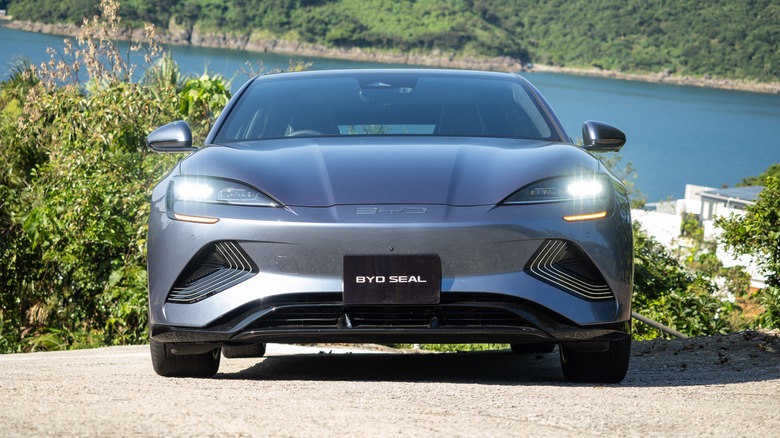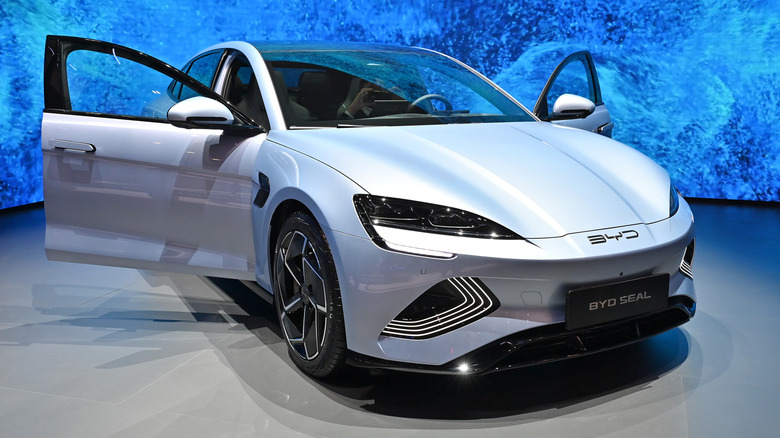The Tesla Rival Elon Musk Once Laughed At Just Had A Disastrous Road Test
Chinese electric car giant BYD, often seen as the toughest Tesla rival, apparently has a problem with the drive mechanism on one of its premium sedans. Swedish news outlet Teknikens Värld tested the BYD Seal, and found that its all-wheel-drive system doesn't work as expected, especially in crucial scenarios such as snow-covered roads where four-wheel propulsion a key differentiator.
On a hilly road coated with snow, offering a slippery surface, the vehicle is seen failing to engage its front wheels for propulsion. Similarly, when tested on a mechanized system of zero-friction rollers set on an eight-degree incline, the vehicle once again activated its rear-wheel drive functionality.
Teknikens Värld assessed all the driving modes available on the BYD Seal, of which they borrowed two test units, and found the four-wheel drive system malfunctioning. "The bottom line is that BYD Seal performs purely rear-wheel drive," writes the outlet. The Chinese company assessed the test footage and says it is thoroughly investigating the issue.
BYD, which continues its global expansion at a rapid pace, has garnered a lot of praise for the sheer quality, attention to detail, and the alluring pricing strategy of its cars. However, the apparent failure of its four-wheel drive system as highlighted in the report could put a dent in its reputation — right at a time when it's eyeing the U.S. market. It's unclear if the AWD failure on the Seal is a model-wide flaw, so we'll have to wait for results from BYD's internal assessment.
No small failure
The Seal's aforementioned flub definitely gives rivals like Tesla the opportunity to hawk their cars as a superior product. Musk, who once laughed at the sub-standard quality of early BYD cars, has lately grown concerned at BYD's rapid evolution. "Frankly, I think, if there are not trade barriers established, they will pretty much demolish most other companies in the world," he said on a Tesla earnings call late in 2023. BYD, on the other hand, ended 2023 with a record annual sale of three million cars, but that doesn't allay concerns.
A drive propulsion failure is no small hiccup, especially when a buyer forks out extra cash for it, and has genuine practical utility to extract out of the all-wheel drive system. Cars with an all-wheel drive system are generally considered more adept at navigating tougher surface conditions like icy winter roads, muddy paths, and loose surfaces like sand. Especially with the right tires and other equipment, all-wheel drive systems allow all four wheels to collectively work for traction.
Even if two wheels are lodged in mud or snow, the remaining two wheels can still operate to extricate the vehicle. Moreover, AWD systems are monitored by a software system that allocates power to the wheels based on necessity. In cars like those made with AWD, the switch between rear-wheel and four-wheel propulsion is allocated across custom driving modes, kicking into action when the driver feels the need to increase or enhance a vehicle's traction during acceleration. Were that system to fail, vehicles like the BYD Seal could struggle in adverse road conditions.

